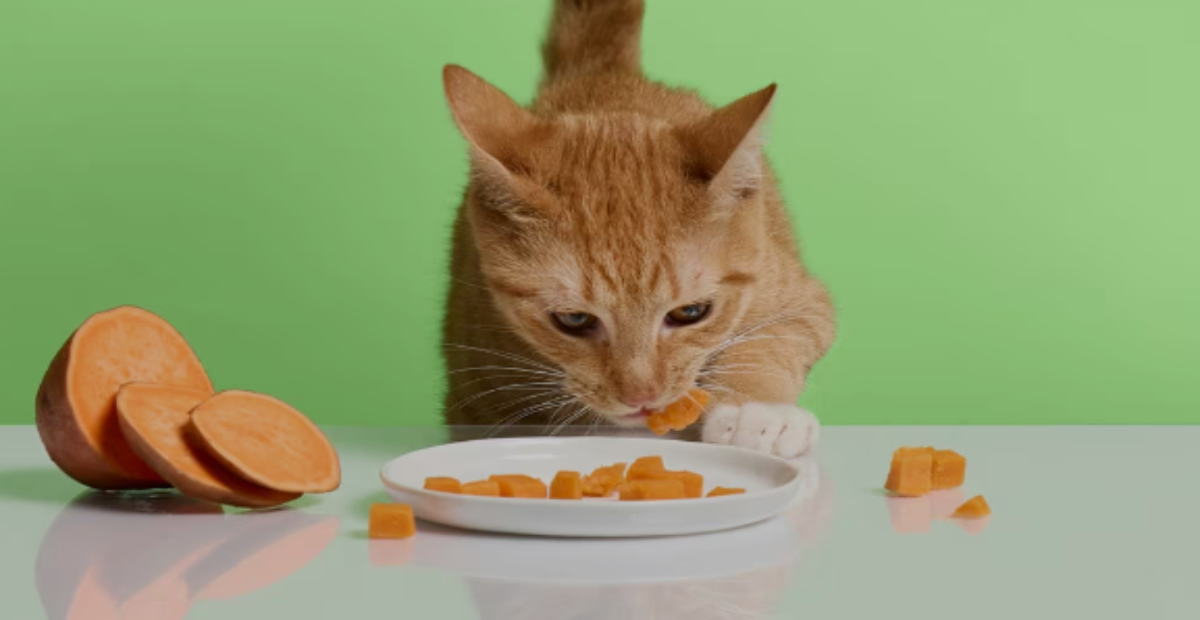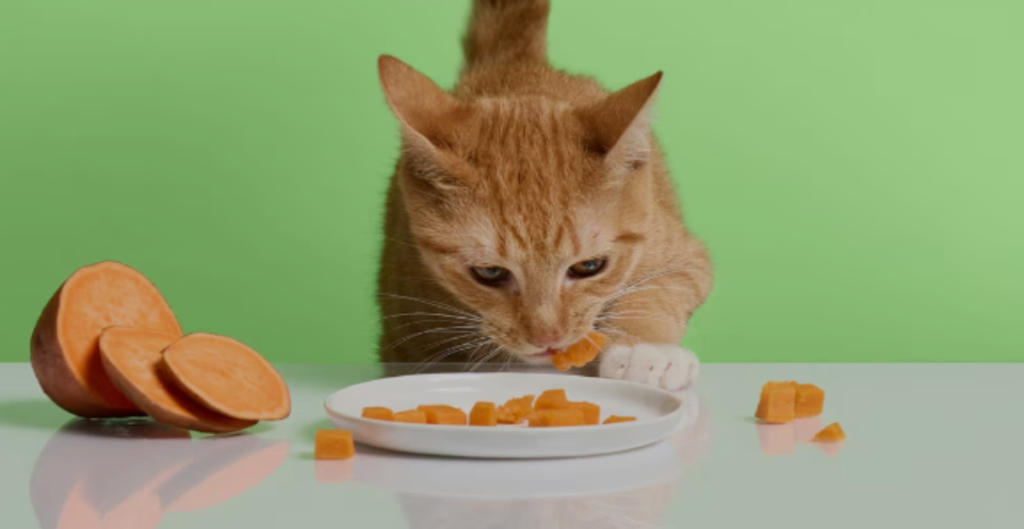
Sweet potatoes are a nutritious root vegetable that can provide health benefits to cats when properly incorporated into their diet. Sweet potatoes contain beneficial vitamins, minerals, fiber and antioxidants. This orange tuber has been cultivated in Greece since ancient times. When served cooked and mashed, sweet potato can be a delicious and healthy occasional treat or addition to a balanced home diet for cats.
This article explores the key nutritional contents of sweet potatoes, how they can support feline health, and safe ways to add this vegetable to a cat’s regular meal in Greece. We’ll also go over some potential concerns and proper serving sizes.
Nutritional value
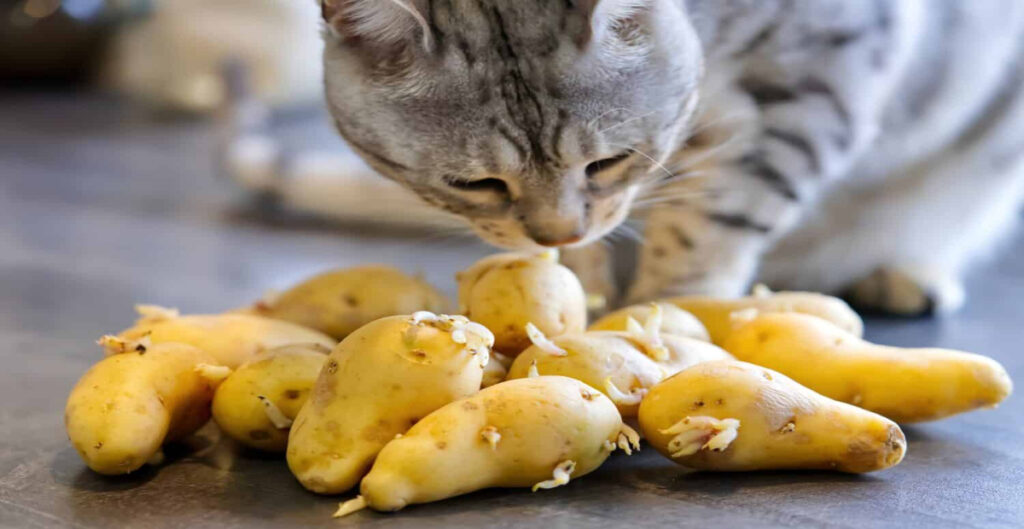
Vitamins
Sweet potatoes contain vitamins A, C and B6. Vitamin A benefits vision, skin/coat, growth and immunity. Vitamin C helps collagen production and antioxidant function. B vitamins support energy metabolism.
Minerals
Manganese helps maintain connective tissue. Copper helps in the formation of red blood cells. Potassium supports water balance in cells. There are also small amounts of iron, calcium and selenium.
Fiber
The skin of the sweet potato provides insoluble fiber to promote regular digestion and maintain gut health. This helps cats prone to hairballs or constipation.
Antioxidants
Compounds such as anthocyanins, beta-carotene and vitamin C act as antioxidants to reduce inflammation and cell damage while boosting immunity.
Low calories
Sweet potatoes are relatively low in calories, especially compared to starchy white potatoes. This makes them suitable for overweight cats when fed occasionally.
Οφέλη για την υγεία για τις γάτες
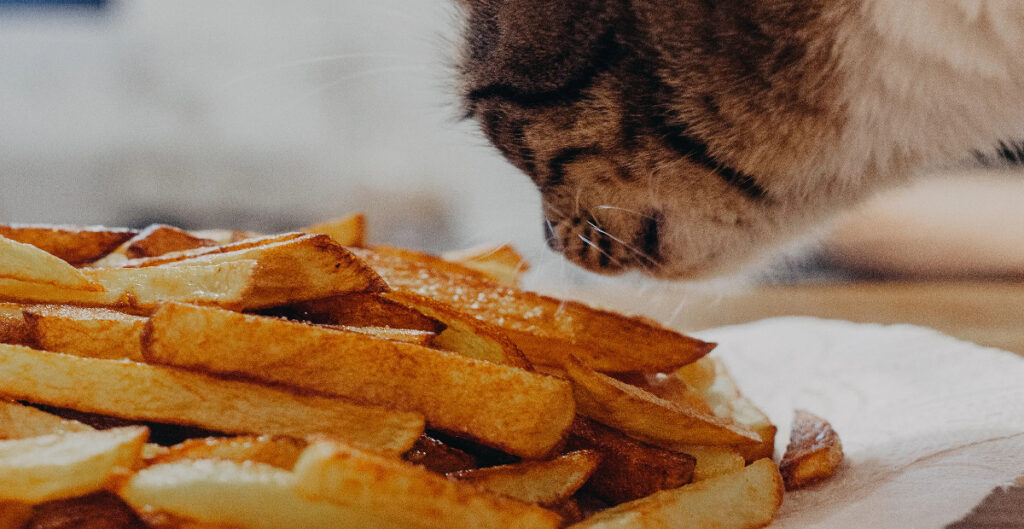
Some key ways that sweet potatoes can support feline health include:
Digestive Health
Fiber prevents constipation and helps move hair through the gastrointestinal tract to minimize hairballs. Fermentable fiber also promotes healthy gut flora.
Urinary tract health
The low potassium and magnesium content makes sweet potatoes ideal for cats prone to UTIs or bladder stones. Manganese also helps with kidney function.
Immune Support
Antioxidants such as vitamins A and C fight free radicals, boosting immunity. Vitamin A maintains the integrity of epithelial tissue.
Vision Health
Compounds such as beta-carotene are converted to vitamin A, which benefits eye health and vision, important for cats as hunters.
Skin and coat
Vitamin A keeps the skin and coat healthy while Vitamin C helps in collagen production. Antioxidants reduce skin inflammation caused by sun damage.
Feeding sweet potatoes to cats in Greece
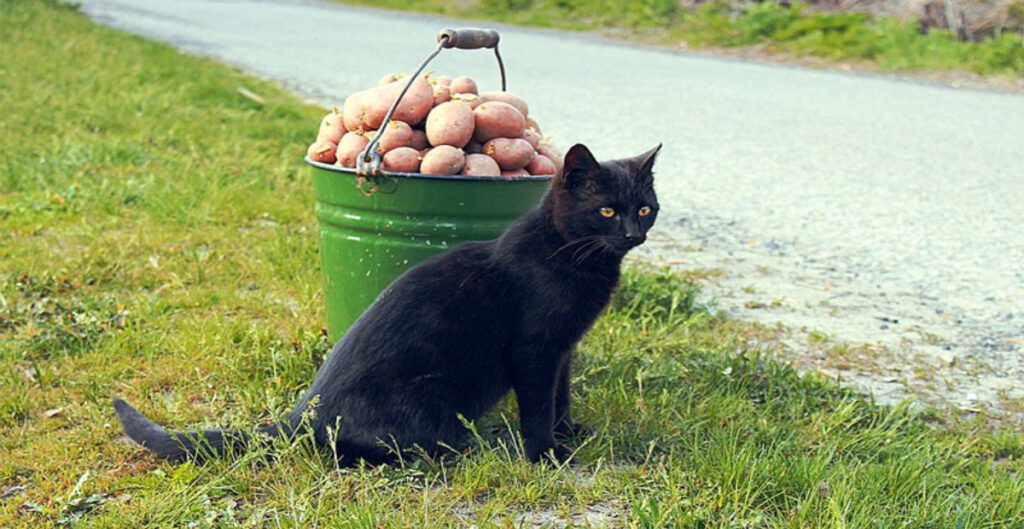
When served correctly, sweet potato can provide healthy variety to a cat’s diet:
Steam or boil the sweet potato flesh to soften it for digestion
Mash the sweet potato well with additional water to form a puree
Allow the puree to cool before serving
Introduce slowly mixed into regular cat food to avoid stomach upset
Limit to 2-3 times a week. Sweet potato should not replace the main sources of protein Serve about 1-2 teaspoons per 3 kg of body weight
Avoid adding butter, sugar or heavy seasonings
Do not feed the skin or raw sweet potato, which is difficult to digest
Watch your cat’s reaction when you first feed this new food. Discontinue use if any digestive upset or allergic reaction occurs.
Possible concerns

Although generally safe in moderation, a few precautions apply when feeding sweet potatoes:
Only feed cooked sweet potato. raw is very difficult to digest
Avoid giving skins that could cause blockage if swallowed
Do not suddenly replace large amounts of their normal food
Prevent access to the sweet potatoes you cook yourself
Welcome!
The “Secret code visible” after 20 seconds.
